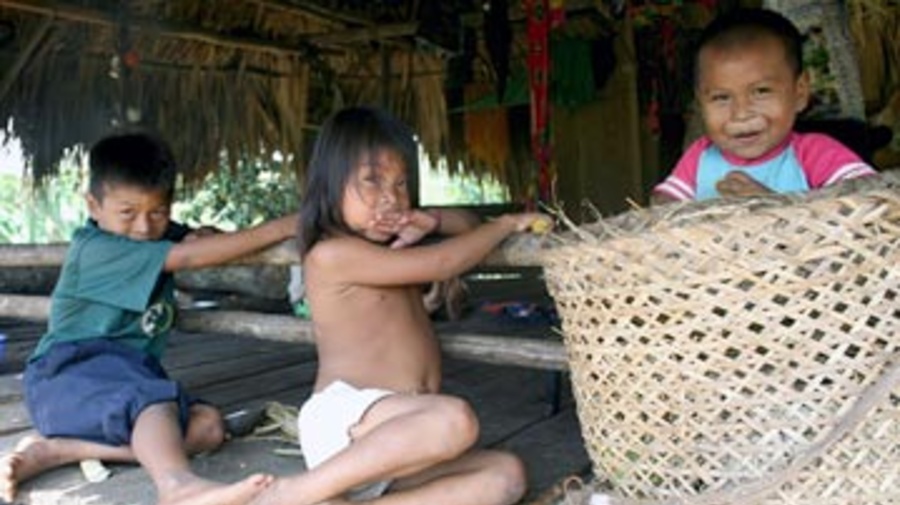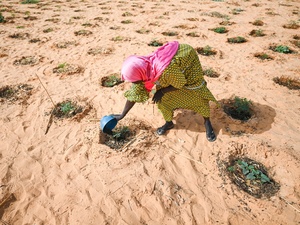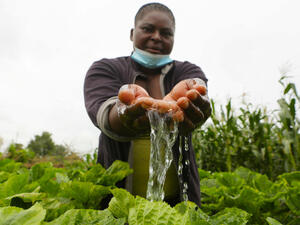Refugee status and clean water "change everything" for indigenous Colombians
Refugee status and clean water "change everything" for indigenous Colombians

Colombian indigenous children in jungle settlements in Panama are healthier now that they have clean water.
DARIÉN GAP, Panama, 26 Dec (UNHCR) - After months of hardship and fear, life took a turn for the better in December, 2006, for 11 families of the Wounaan community. In a landmark step by the national authorities, they became the first group of Colombian indigenous people ever to be granted refugee status in Panama.
"It changed everything. It was only when we got the news that we started to believe we could stay and leave the past behind," says José*, one of the 47 refugees who are now living in Vista Alegre, a small river settlement in Panama's Darién jungle.
The Wounaan families had reached Panama in May 2006, fleeing violence and persecution by an irregular armed group in their native Colombia. They crossed through the Darién Gap, a vast expanse of jungle that separates the two countries.
The decision a year ago to grant them refugee status gave them the stability they needed to begin anew. With the help of the UNHCR and the international community, among them the humanitarian aid department of the European Commission, ECHO, the group began to rebuild its life.
One of the first priorities was to provide the settlement with clean water. There's plenty of water in the Darién jungle's swamps and many rivers, but its remote communities lack even the most basic infrastructure to make it safe to drink.
Ruth* is the 23-year-old mother of two small children, the younger one born just days after Ruth arrived at the settlement. "The baby was fine at first because she only drank milk, but her brother was very sick," she remembers.
The installation of a water pump and tank has changed her life, not only because her children are healthier, but because she no longer has to spend hours every day carrying water from the river.
Shelter and clean water are always among the very first necessities for people fleeing their homes to escape violence. Such priorities are the core of ECHO's emergency help for those most in need. "That crucial period when refugees arrive in a new country is when the relationship between us and UNHCR is at its most active," explained José Maria Echevarría, ECHO's regional delegate for Colombia and Panama, on the occasion of an ECHO visit to the Darién.
Once basic needs are met, the UN refugee agency also supports local initiatives to help with children's schooling, and training the adults in basic professional skills such as carpentry and weaving.
The two organizations have also set up a clean water system in the community of Alto Playona, home to another Colombian indigenous group, 66 Embera people who reached the settlement after months of wandering to escape an irregular armed group in Colombia.
But unlike their Wounaan compatriots, the Embera families in Alto Playona, and 22 others in the nearby community of Canán, are still unsure of their future. They asked for asylum in Panama a year ago and are still waiting for the government to decide whether they can stay as refugees. The uncertainty makes it difficult at times to focus on the future.
"I still think every day about what happened to us in Colombia and it fills me with fear, even though here we live in peace," says a teenage Embera boy. At seventeen, he has made up his mind: He never wants to return to his home country and live in such terror again.
* Names changed to protect the refugees
By Marie-Hélène Verney in Panama









